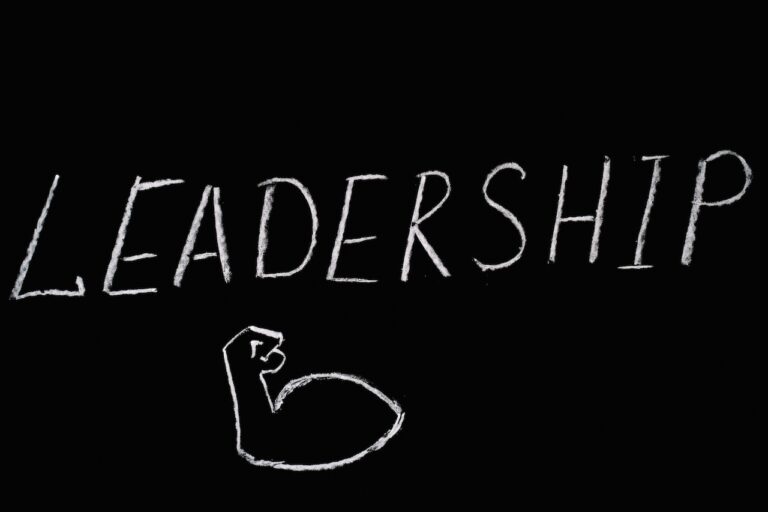Rising Above Emotions: The Power of Thoughtful Responses in Leadership
Navigating Challenges with Emotional Intelligence and Mental Toughness
In the realm of leadership, every day brings its own set of challenges. It’s almost inevitable that at some point, someone will disagree with you, correct you, or critique your ideas. You may find yourself in situations where your ideas are overlooked in favor of someone else’s, or where someone else is chosen over you. And sometimes, decisions may be made that you strongly disagree with. This is the reality of life and leadership – not everything is about you, and things won’t always go your way.
In these moments, a whirlwind of emotions can stir within you. Bitterness, hurt, frustration, disappointment, shame, and anger may all make their presence known. It’s important to recognize that some of these feelings may not only be valid but true. It’s natural to feel ignored, taken advantage of, unseen, or even less than what you believe you deserve. However, the key to effective leadership lies in how you choose to respond to these emotions.
Imagine for a moment what would happen if you handed the keys to your decisions over to these negative emotions. What if you allowed frustration, disappointment, or hurt to dictate your actions? Visualize the consequences of acting out of these emotional states. Does it result in increased influence and respect? Does it make the situation better? Does it genuinely make you feel better? Chances are, the answer to these questions is a resounding “no.”
Instead, consider an alternative approach. Take a moment to pause and acknowledge the feelings that have arisen within you. Validate them without allowing them to control your actions. This is where emotional intelligence and mental toughness come into play. Leaders who embody emotional intelligence understand that emotions are a natural part of the human experience, but they don’t let those emotions overpower their decision-making process.
Embracing emotional intelligence means choosing to respond with humility, clarity, and maturity. It means living up to a higher standard, even when your emotions are tempting you to do otherwise. The mentally tough and emotionally intelligent leaders are the ones who consistently choose to live the standard, regardless of how they feel.
Making a thoughtful response instead of succumbing to an emotional reaction is a mark of true leadership. It requires the ability to recognize the power of response versus reaction. When you react impulsively based on emotions, you relinquish control over the situation and potentially damage your relationships and influence. On the other hand, responding thoughtfully allows you to maintain composure, consider the bigger picture, and navigate challenges with a clear mind.
Choosing thoughtful responses brings numerous benefits to leadership. It enhances your influence by showing others that you can handle difficult situations with grace and wisdom. Thoughtfulness improves your decision-making abilities as you take the time to consider different perspectives and weigh the potential outcomes. Moreover, it enables you to build positive relationships, as people are more likely to trust and respect a leader who responds thoughtfully and empathetically.
To develop the skill of choosing thoughtful responses, it’s essential to implement practical strategies. First, when faced with a challenging situation, take a moment to pause and reflect before responding. This pause allows you to distance yourself from immediate emotional reactions and gives you the opportunity to approach the situation with a clearer mindset.
Additionally, recognize and validate your emotions without allowing them to dictate your actions. Emotions are valuable signals, but they shouldn’t be the sole basis for decision-making. By acknowledging your feelings, you can process them in a healthy way while maintaining control over your responses.
Seeking perspective and considering the bigger picture is another crucial aspect of responding thoughtfully. Understand that the situation at hand is just one piece of a larger puzzle. By zooming out and examining the broader context, you can make more informed decisions and respond in a manner that aligns with long-term goals and values.
Finally, responding with humility, clarity, and maturity is key to living up to the leadership standard. Humility allows you to set aside your ego and approach challenges with an open mind. Clarity enables you to communicate your thoughts and intentions effectively, even in the face of adversity. Maturity ensures that you rise above petty conflicts and demonstrate a level of emotional intelligence that garners respect from others.
Ultimately, living the leadership standard is about aligning your thoughts, words, and actions with integrity, accountability, and continuous growth. It’s not always easy, especially when faced with challenges that stir up negative emotions. However, leaders who consistently choose thoughtful responses and live the standard are the ones who inspire and make a lasting impact on those around them.
When faced with situations that challenge you, remember that you have the power to choose your response. By prioritizing thoughtful responses over emotional reactions, you can navigate through difficulties with grace and wisdom. Embrace emotional intelligence, cultivate mental toughness, and commit to living the leadership standard. In doing so, you will not only enhance your own effectiveness as a leader but also inspire others to do the same.
Understanding the Natural Responses to Challenges
Acknowledging the Range of Emotions that Arise in Challenging Situations
When faced with challenges or setbacks in leadership, it is only natural for a range of emotions to surface. These emotions often stem from a deep personal investment in our ideas, our abilities, and our desire for recognition and success. By acknowledging and understanding these emotions, we can better navigate their impact on our decision-making and behavior.
Disagreement and Correction
When someone disagrees with us or corrects our ideas, it can evoke feelings of defensiveness, frustration, or even a sense of personal attack. We may find ourselves questioning our competence or feeling a blow to our self-esteem. It is important to recognize that differing opinions and corrections are part of the growth process and should not be taken as personal affronts.
Criticism and Alternate Ideas
Receiving criticism or having someone present an alternative idea to our own can trigger similar emotional responses. We may feel protective of our original concept and become defensive or dismissive. However, embracing constructive criticism and considering alternative viewpoints can lead to better solutions and foster a collaborative environment.
Being Overlooked or Passed Over
Being overlooked or passed over for opportunities can be disheartening and elicit emotions such as disappointment, resentment, or even jealousy. It is natural to desire recognition and advancement for our efforts and contributions. However, it is crucial to recognize that everyone’s journey is unique, and sometimes timing or circumstances play a significant role in decision-making.
Disagreements with Decisions Made
When decisions are made that we strongly disagree with, it can evoke a sense of frustration, powerlessness, or even anger. We may question the fairness or logic behind these choices. However, it is important to remember that leadership often involves complex considerations, and decisions are made based on various factors that may not always be evident to us.
The Potential Impact of These Emotions on Decision-Making and Behavior
Emotions have a profound influence on our decision-making and behavior, particularly in high-stress situations. When we allow our emotions to take control, they can cloud our judgment and lead to impulsive reactions that may not align with our long-term goals or the needs of the situation.
Reacting solely based on our emotional state can diminish our influence as leaders. It may cause others to perceive us as volatile, unpredictable, or unable to handle challenges with composure and wisdom. Moreover, emotional reactions can escalate conflicts, strain relationships, and create a toxic work environment.
Furthermore, emotional reactions rarely yield positive results or bring genuine satisfaction. They may provide temporary relief but often lead to regret, damage relationships, and hinder our ability to achieve the outcomes we desire. By succumbing to our emotions, we relinquish control over our decisions and inadvertently undermine our own leadership.
Understanding these potential consequences helps us recognize the importance of managing our emotions and choosing thoughtful responses instead. It is not about suppressing or invalidating our emotions but rather acknowledging them while maintaining our ability to respond in a way that reflects emotional intelligence and mental toughness.
In the next section, we will explore the consequences of acting based on emotions and highlight the benefits of choosing thoughtful responses in leadership. By developing emotional resilience and self-awareness, we can effectively navigate the challenges we face as leaders and create a positive impact on ourselves and those around us.
The Consequences of Acting Based on Emotions
Evaluating the Outcomes of Emotional Reactions
When we allow our emotions to drive our actions, the consequences can be far-reaching and detrimental to our leadership effectiveness. It is crucial to examine these outcomes critically to understand the importance of choosing thoughtful responses.
Diminished Influence and Credibility
Reacting impulsively based on emotions can erode the trust and respect others have in our leadership. When people witness leaders who consistently respond emotionally, they may question their ability to make rational decisions or handle challenging situations with composure. As a result, our influence over others may diminish, and our credibility as a leader can be compromised.
Escalation of Conflicts and Strained Relationships
Emotional reactions tend to escalate conflicts rather than resolving them. When we respond with anger, defensiveness, or dismissiveness, we create a hostile environment that inhibits collaboration and effective communication. Instead of finding common ground or seeking constructive solutions, conflicts may intensify, causing rifts within teams and straining relationships.
Personal Dissatisfaction and Unfulfillment
Choosing emotional reactions as our default response can lead to personal dissatisfaction and unfulfillment. While lashing out in the moment might provide temporary relief, it often leaves us feeling remorseful or regretful afterward. Emotion-driven actions rarely align with our long-term values and aspirations, leaving us with a sense of disappointment in ourselves and hindering our personal growth as leaders.
Illustrative Scenarios Demonstrating the Negative Impact of Emotional Reactions
Let us explore a few scenarios to illustrate the negative consequences that can arise when leaders act solely based on emotions:
-
Reacting defensively to feedback: Imagine receiving constructive criticism from a colleague regarding a project you spearheaded. Instead of objectively considering their input, you respond defensively, attacking their credibility or dismissing their perspective. Such a reaction can lead to strained relationships, hinder open communication, and prevent the growth of both yourself and your team.
-
Letting resentment cloud judgment: Suppose you were passed over for a promotion in favor of a colleague. Instead of seeking to understand the decision or considering the bigger picture, you allow resentment to consume you. As a result, you may become disengaged, exhibit negativity in your work, and damage your professional reputation, potentially limiting future opportunities for advancement.
-
Allowing anger to fuel conflicts: Picture a situation where you strongly disagree with a decision made by upper management. Instead of responding thoughtfully and seeking constructive dialogue, you react impulsively with anger, publicly criticizing the decision and undermining the leadership’s authority. This type of emotional outburst can fracture trust, create a toxic work environment, and damage your standing as a leader within the organization.
These scenarios demonstrate the negative impact of emotional reactions on both individuals and teams. By contrast, thoughtful responses allow leaders to rise above their initial emotional reactions and navigate challenges in a more constructive manner.
In the subsequent sections, we will delve into the qualities of emotional intelligence and mental toughness that are essential for effective leadership. By developing these attributes, leaders can cultivate the capacity to choose thoughtful responses, navigate difficult situations with grace, and maintain their influence and credibility.
Embracing Emotional Intelligence and Mental Toughness
Defining Emotional Intelligence and Its Relevance to Leadership
Emotional intelligence (EI) is a critical component of effective leadership. It refers to the ability to recognize, understand, and manage our own emotions, as well as to empathize with and navigate the emotions of others. Leaders with high emotional intelligence can effectively build relationships, inspire and motivate their teams, and make informed decisions in the face of challenges.
Self-awareness and Self-regulation
Self-awareness is the foundation of emotional intelligence. It involves being attuned to our own emotions, strengths, weaknesses, and triggers. By understanding our emotional landscape, we can recognize the impact our emotions have on our behavior and decision-making. Self-regulation is the ability to manage and control our emotions, ensuring that they do not overpower or dictate our actions. It enables us to respond thoughtfully instead of reacting impulsively, even in the face of adversity.
Empathy and Social Awareness
Empathy is the ability to understand and share the feelings of others. It involves putting ourselves in someone else’s shoes, recognizing their perspectives, and responding with compassion and understanding. Social awareness encompasses the skill of accurately perceiving and interpreting the emotions and dynamics within a group or organization. Leaders who are empathetic and socially aware can build strong connections, foster collaboration, and create a positive work environment.
Relationship Management
Relationship management involves effectively navigating interpersonal interactions and building productive relationships. It encompasses skills such as effective communication, conflict resolution, and the ability to inspire and motivate others. Leaders with strong relationship management skills can create a sense of trust and loyalty within their teams, promote teamwork, and facilitate the achievement of common goals.
Cultivating Mental Toughness for Effective Leadership
Mental toughness is another crucial attribute for leaders. It refers to the ability to maintain resilience, focus, and determination in the face of challenges, setbacks, and adversity. Leaders with mental toughness can persevere, adapt, and make sound decisions even under pressure. Developing mental toughness equips leaders with the strength to face difficulties head-on and respond thoughtfully rather than succumbing to emotional reactions.
Resilience in the Face of Challenges
Leaders encounter numerous obstacles and setbacks throughout their journey. Mental toughness enables them to bounce back from failures, learn from their mistakes, and persist in the pursuit of their goals. Resilient leaders understand that challenges are opportunities for growth and view setbacks as stepping stones rather than roadblocks.
Maintaining Composure and Perspective
Leadership often requires making decisions and taking action in high-stress situations. Mental toughness allows leaders to maintain composure and clarity of thought, even when faced with intense pressure. By staying calm and collected, leaders can effectively assess the situation, consider various options, and make well-informed decisions that align with the organization’s goals.
Fostering a Growth Mindset
A growth mindset is the belief that abilities and intelligence can be developed through dedication, effort, and a willingness to learn. Leaders with a growth mindset embrace challenges as opportunities to learn and improve. They seek feedback, continuously expand their knowledge and skills, and encourage the same growth mindset within their teams. By fostering a growth mindset, leaders create an environment that values learning, innovation, and resilience.
By embracing emotional intelligence and cultivating mental toughness, leaders can enhance their ability to choose thoughtful responses in challenging situations. These qualities enable leaders to navigate complex dynamics, manage emotions effectively, and inspire their teams to achieve exceptional results.
Choosing Thoughtful Responses
Understanding the Power of Response versus Reaction
In leadership, the power lies not in our initial emotional reactions but in our thoughtful responses. Reaction is instinctive and driven by immediate emotions, often resulting in impulsive and hasty decisions. On the other hand, response involves a deliberate and considered approach that takes into account various factors, including the impact on relationships, long-term goals, and the well-being of the team.
By recognizing the power of response, leaders can break free from the grip of their emotions and exercise control over their actions. This shift in mindset allows for more effective problem-solving, conflict resolution, and decision-making. It also fosters an environment of trust, respect, and open communication, as team members witness leaders who are composed, thoughtful, and committed to finding the best possible outcomes.
The Benefits of Thoughtfulness in Leadership
Choosing thoughtful responses brings numerous benefits to leadership, both for the leader and the entire team. Let’s explore some of these benefits in detail:
Enhanced Influence and Trust
When leaders respond thoughtfully, they demonstrate emotional intelligence and sound judgment. This behavior garners the trust and respect of their team members, peers, and superiors. Leaders who consistently choose thoughtful responses build a reputation for being reliable, dependable, and level-headed. Consequently, their influence expands, and others are more likely to seek their guidance and follow their lead.
Improved Decision-Making
Thoughtful responses are the result of careful consideration and weighing various perspectives and options. When leaders respond thoughtfully, they can make more informed decisions that consider the broader impact on the organization, stakeholders, and team members. By incorporating different viewpoints and maintaining clarity of thought, leaders can make choices that are aligned with the organization’s values and long-term objectives.
Building Positive Relationships
Thoughtful responses lay the foundation for building positive relationships within a team and across the organization. When leaders respond with empathy, understanding, and respect, they create an environment where open communication and collaboration flourish. Thoughtful responses foster trust, encourage diverse thinking, and promote a sense of psychological safety. This, in turn, leads to higher engagement, productivity, and a positive work culture.
Strategies for Developing Thoughtful Responses
Developing the ability to choose thoughtful responses requires practice and self-awareness. Here are some practical strategies to cultivate this essential leadership skill:
Pause and Reflect Before Responding
In moments of heightened emotions, it is essential to take a pause before responding. This pause allows you to step back from the immediate reaction and gain perspective. Use this time to reflect on the situation, consider the potential consequences of different responses, and assess the underlying emotions that may be influencing your perspective. This intentional pause provides the space needed to respond thoughtfully rather than react impulsively.
Recognize and Validate Emotions Without Dictating Actions
Acknowledging and validating your emotions is crucial for emotional well-being. Instead of suppressing or ignoring them, give yourself permission to feel and acknowledge your emotional state. However, it is important not to let these emotions dictate your actions. By recognizing and accepting your emotions without allowing them to control your responses, you can respond thoughtfully and maintain control over your behavior.
Seek Perspective and Consider the Bigger Picture
In challenging situations, it is beneficial to seek different perspectives and consider the bigger picture. Engage in active listening and seek input from others involved. This broader view helps you understand alternative viewpoints, uncover blind spots, and identify potential solutions that may not have been apparent initially. By considering the broader context, you can respond in a manner that aligns with the organization’s goals and values.
Respond with Humility, Clarity, and Maturity
Thoughtful responses require humility, clarity, and maturity. Humility allows you to set aside ego and embrace the idea that you don’t have all the answers. It enables you to listen openly to others and consider their insights. Clarity of thought ensures that your response is grounded in sound judgment and aligned with your values. Maturity empowers you to rise above personal grievances and choose a response that benefits the greater good.
By practicing these strategies consistently, leaders can develop the habit of choosing thoughtful responses over emotional reactions. Over time, this intentional approach becomes second nature, leading to more effective leadership, improved relationships, and better outcomes.
Living the Leadership Standard
Defining the Leadership Standard
Living the leadership standard means embodying a set of principles and values that guide your thoughts, words, and actions as a leader. It is about holding yourself to a higher level of accountability and consistently demonstrating integrity, ethics, and a commitment to continuous learning and growth. The leadership standard serves as a compass, guiding your decisions and behaviors even when faced with challenges or emotional turmoil.
Integrity and Ethical Behavior
Integrity lies at the core of the leadership standard. It involves aligning your actions with your values, being honest and transparent, and adhering to ethical principles. Leaders who live the leadership standard consistently act with integrity, earning the trust and respect of their teams and stakeholders.
Accountability and Responsibility
Living the leadership standard means taking ownership of your decisions and actions. It involves holding yourself accountable for your performance, acknowledging mistakes, and learning from them. Leaders who live the standard demonstrate responsibility by taking proactive steps to address challenges, honoring commitments, and leading by example.
Continuous Learning and Growth
Leadership is a journey of continuous learning and growth. Living the leadership standard means embracing a growth mindset, seeking opportunities for self-improvement, and encouraging the growth of others. It involves staying curious, embracing challenges as learning opportunities, and actively seeking feedback to refine your skills and knowledge.
Aligning Thoughts, Words, and Actions with the Leadership Standard
Living the leadership standard requires consistency and alignment between your thoughts, words, and actions. It is not enough to simply understand and espouse the principles; you must embody them in your daily interactions and decision-making processes.
Reflect on Your Thoughts and Beliefs
Start by examining your own thoughts and beliefs. Are they aligned with the leadership standard? Are there any biases, assumptions, or limiting beliefs that may hinder your ability to respond thoughtfully? By becoming aware of your thought patterns, you can challenge and reshape them to align with the values and principles of effective leadership.
Communicate with Clarity and Authenticity
Leaders who live the standard understand the importance of clear and authentic communication. They articulate their thoughts and expectations effectively, ensuring that their words align with their beliefs and intentions. By communicating with clarity and authenticity, leaders create an atmosphere of trust and transparency, facilitating open dialogue and collaboration.
Lead by Example
One of the most powerful ways to live the leadership standard is through leading by example. Your actions speak louder than words. Consistently demonstrate the behaviors and qualities you expect from others. Whether it’s embracing diversity and inclusion, showing empathy and respect, or embracing a growth mindset, be the embodiment of the leadership standard you seek to inspire in others.
Inspiring Others to Live up to the Standard Through Example
Living the leadership standard goes beyond personal adherence. It involves inspiring and empowering others to do the same. When leaders consistently live the standard, they create a ripple effect, influencing their teams and organizational culture.
Set Clear Expectations
Clearly communicate the leadership standard and expectations to your team. Ensure that everyone understands the values, behaviors, and principles that guide your organization. By setting clear expectations, you provide a framework for your team to align their actions and decisions with the standard.
Foster a Culture of Accountability and Growth
Encourage a culture of accountability and growth by providing support, resources, and opportunities for learning and development. Create an environment where individuals are encouraged to take ownership of their actions, learn from mistakes, and strive for continuous improvement. Recognize and celebrate instances where team members demonstrate the leadership standard, reinforcing the value of living up to those principles.
Mentor and Coach Others
As a leader, take on the role of a mentor and coach. Support the growth and development of your team members by providing guidance, feedback, and opportunities for skill-building. Help them navigate challenges and encourage them to respond thoughtfully, even in the face of adversity. By investing in the growth of others, you create a network of leaders who embody the leadership standard.
Living the leadership standard is an ongoing commitment. It requires self-reflection, consistent practice, and a dedication to personal and professional growth. By living up to this standard, leaders not only enhance their own effectiveness but also inspire and empower those around them to strive for excellence and make a positive impact.
Inspiring Excellence: Choosing Thoughtful Responses and Living the Leadership Standard
In the dynamic and challenging landscape of leadership, choosing thoughtful responses is paramount to success. By recognizing the power of response versus reaction, leaders can navigate through adversity with grace, wisdom, and emotional intelligence. Thoughtful responses allow leaders to maintain influence, build trust, and foster positive relationships within their teams and organizations.
Throughout this article, we explored the natural responses to challenges that leaders face, the consequences of acting solely based on emotions, and the benefits of choosing thoughtful responses. We delved into the significance of emotional intelligence and mental toughness, emphasizing their role in effective leadership. Additionally, we discussed practical strategies for developing thoughtful responses and explored the concept of living the leadership standard.
Living the leadership standard means aligning thoughts, words, and actions with integrity, accountability, and a commitment to continuous learning and growth. It involves consistently demonstrating these qualities in daily interactions and decision-making processes. By living the standard, leaders inspire and empower others to do the same, creating a culture of excellence and trust.
As we conclude, it is important to recognize that choosing thoughtful responses is not always easy. It requires self-awareness, self-discipline, and a willingness to prioritize the bigger picture over momentary emotions. However, the rewards are significant. Thoughtful responses enhance leadership effectiveness, improve decision-making, and foster positive relationships within teams and organizations.
Leaders who commit to choosing thoughtful responses and living the leadership standard set themselves apart as true influencers. They inspire their teams to excel, build a culture of trust and respect, and make a lasting positive impact. By embracing emotional intelligence, cultivating mental toughness, and committing to continuous growth, leaders can navigate challenges with clarity, empathy, and grace.
In your leadership journey, remember that each day brings new opportunities and challenges. Embrace the power of choosing thoughtful responses and living the leadership standard. By doing so, you position yourself as a beacon of inspiration and guide others to rise above their emotions, make wise decisions, and create a positive and thriving work environment.
Now, it is time to reflect on your own leadership style. How can you further develop your emotional intelligence and mental toughness? How can you align your thoughts, words, and actions with the leadership standard? As you embrace the power of thoughtful responses, you will discover the transformative impact it has on your leadership effectiveness and the fulfillment you derive from making a meaningful difference in the lives of others.
Choose to have a thoughtful response rather than an emotional reaction. Live the standard.







